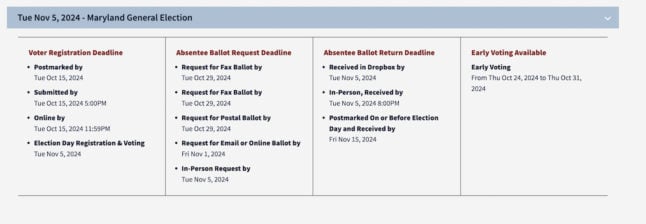Imagine being financially penalised simply because you chose to live your life abroad. Unable to open a bank account or save for retirement. Exposed to draconian penalties for not telling Uncle Sam about all your “foreign” (ie local) financial accounts. Having to declare income to a country in which you do not live. This is the harsh reality for millions of American citizens who face outdated and discriminatory tax policies.
As certain provisions of the 2017 US tax reform legislation near their expiration, the time has arrived to correct this injustice.
A new global campaign, Tax Fairness for Americans Abroad (TFFAA), is dedicated to ending the unfair treatment of US citizens abroad. Our mission is clear: replace the antiquated Citizenship-Based Taxation (CBT) with Residence-Based Taxation (RBT), a system adopted by almost every other country in the world.
TFFAA speaks for an estimated 9 million Americans living outside the US, many of whom have lived abroad for years or even permanently. Our organisation is non-partisan and supports both ordinary Americans and “accidental” Americans – those born in the US or to American parents but who have lived most of their lives abroad. TFFAA is a new organisation, and our board includes well-known figures from the expatriate American community.
READ ALSO How to renounce US citizenship – and why you might want to
TFFAA aims to collect and share expatriate Americans’ experiences with CBT and lobby for changes in US laws and regulations. We will call on Congress and the US Treasury to ensure Americans abroad are treated fairly and not as second-class citizens simply because they live outside the US.
Contrary to popular belief, the majority of the estimated 9 million Americans living abroad are ordinary citizens, neither richer nor poorer on average than those in the US. They move abroad for various reasons, such as studying, working, love, or retirement. Many were born or grew up abroad and may not even speak English.
The tax and financial discrimination against Americans abroad stems from the 19th Century CBT policy of taxing Americans on their worldwide income, even if they already pay taxes in their country of residence.
This policy is complex and burdensome, requiring expatriates to navigate both US tax laws and those of their host country, often resulting in high compliance costs and the need for expensive professional tax advice, typically for little or no US tax liability.
Furthermore, non-US financial institutions often discriminate against Americans due to unique compliance requirements imposed by laws such as the Foreign Account Tax Compliance Act (FATCA) and the Report of Foreign Bank and Financial Accounts (FBAR).
READ ALSO Why Americans are finding it more difficult to open bank accounts in France
These laws demand excessive and tedious reporting, coupled with harsh penalties for non-compliance, which should not apply to accounts in expatriates’ countries of residence. For long-term American residents abroad, even US bank and savings accounts are considered “foreign” financial accounts.
In light of the impending tax reform debates expected in 2025, TFFAA has hired Brownstein Hyatt Farber Schreck, one of Washington’s largest lobbying firms, to maximise our chances of success. This partnership will enable TFFAA to formalise legislative proposals and identify key policymakers to support these crucial policy changes. Our approach will be tailored and adapt to the evolving political landscape and policy frameworks.
It is time to reform the US tax system to reflect the realities of a globalised world and ensure that all Americans, regardless of where they live, are treated with fairness and respect.
If you would like to find out more, or would like to make a financial contribution to TFFAA’s work, head to the group’s website at www.taxfairnessabroad.org
You can also share your views (on this or any other topic) with the US government via this White House survey for Americans abroad




 Please whitelist us to continue reading.
Please whitelist us to continue reading.
It’s not that hard, or that tedious. And the US provides credit for the foreign tax paid.
It’s really not that hard. Americans who don’t like filing US taxes can always rescind their US citizenship.
And then, as Andrew Henderson says, “go where you are treated best” (watch the Nomad Capitalist to learn more).
I renounced years ago to be able to avoid US taxation without representation. It was awful and I’m so glad it’s over.
The US forms are clear, concise, and easy to complete. No need to pay anyone to do it for you. The Franco/American tax treaty provides very favourable terms for US citizens in France with US pensions and investment income fully exempt from French taxation. No need to change it at all.
I agree with Jack. You have the freedom to choose where you live. You are paying for the privilege. Decide where you live and follow the rules.